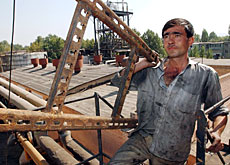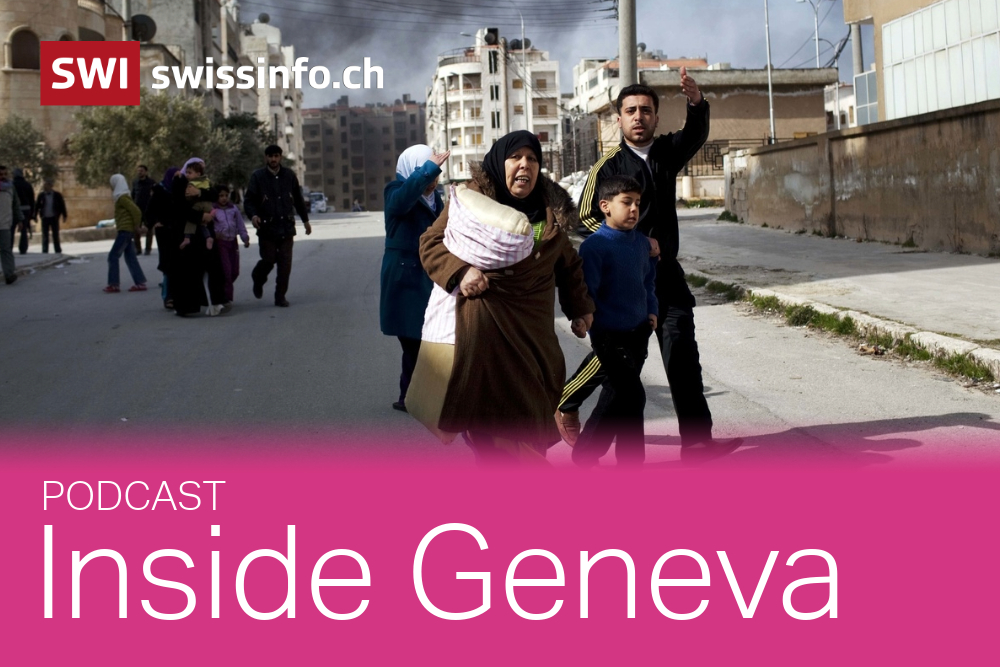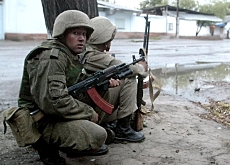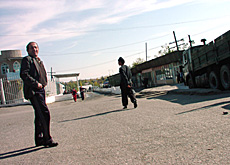
Swiss consider future of Uzbek aid projects

The Swiss government’s overseas aid agency is considering whether to suspend operations in Uzbekistan, following reports of unrest on Friday.
The Swiss Agency for Development and Cooperation (SDC) is waiting for more news before deciding how to proceed with development-aid projects it supports in the eastern Fergana Valley.
Violence erupted in the Uzbek town of Andijan last week, after protesters stormed a prison and freed inmates.
Witnesses said government troops opened fire on a crowd protesting in the central square, including women and children.
The government of President Islam Karimov has blamed the violence on Islamic militants. It claims troops were forced to open fire in Andijan when insurgents attempted to break through an advancing line of Uzbek police and soldiers.
Local people told journalists that the rebellion was staged by residents demonstrating against poverty, corruption and the government’s hard line against Muslims.
SDC spokesman Thomas Jenatsch said he had heard on Monday from the agency’s local staff in Andijan that “sporadic shooting” was continuing and that the city – now under curfew – was being “strictly controlled by the security forces”.
“We have also heard that the army is moving towards the border with Kyrgyzstan to regain control of one village which has also been the scene of unrest,” Jenatsch told swissinfo.
Consultations underway
He added that SDC-sponsored programmes in the region had not been operational since Friday.
The SDC is currently in talks with its development-aid partners, the State Secretariat for Economic Affairs and the Swiss foreign ministry’s human-rights division, and is expected to make an announcement on Wednesday.
“We are asking ourselves how we are going to continue and which projects we may have to suspend,” said Jenatsch.
“We are also trying to gather more information about what is actually going on on the ground… because before we make a decision we need to get a clear picture of what is happening.”
Although Uzbekistan is not one of the SDC’s priority countries for development aid, Switzerland has – within the framework of its regional cooperation with Central Asia – some projects in the east of the country.
These are related to the management of water and heating supplies as well as skills development for young professionals and schemes to train lawyers in human-rights issues.
Humanitarian needs
The SDC reports that around 900 people have crossed over the border into Kyrgyzstan since Friday and that “up to 4,000” more are waiting to do so.
Jenatsch said the Swiss authorities were monitoring humanitarian needs at the border but currently had no plans to follow the United Nations Refugee Agency (UNHCR) and the Swiss-run International Committee of the Red Cross (ICRC) in distributing emergency supplies to those who have fled from Uzbekistan.
“If there is a real refugee crisis – which could turn out to be the case – we would of course respond,” said Jenatsch.
“But for the moment we would rather support the UNHCR and ICRC.”
A group of foreign diplomats and journalists arrived on Wednesday in Andijan to investigate widely diverging death tolls and accounts of the violence.
Jenatsch confirmed that representatives from the Swiss embassy in the Uzbek capital, Tashkent, were planning to visit the region as soon as possible.
The violence in Uzbekistan follows similar protests in neighbouring Kyrgyzstan, which led to the overthrow of President Askar Akayev in March. He was the third leader of an ex-Soviet state to be ousted in 18 months, after those of Georgia and Ukraine.
swissinfo
Switzerland has close bilateral relations with Uzbekistan, representing the country, and its central Asian neighbours, at the International Monetary Fund and World Bank.
The Swiss government has earmarked SFr4.5 million ($3.7 million) for development aid to Uzbekistan this year.
The Swiss currently support four projects in the eastern Fergana Valley, covering education, water and sanitation, heating systems, and the training of lawyers in human-rights issues.

In compliance with the JTI standards
More: SWI swissinfo.ch certified by the Journalism Trust Initiative






































You can find an overview of ongoing debates with our journalists here . Please join us!
If you want to start a conversation about a topic raised in this article or want to report factual errors, email us at english@swissinfo.ch.